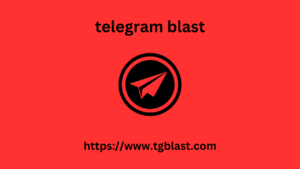Perplexity is trying to bite the traditional internet search engine model and replace it with AI, which instead of a list of links provides ready-made solutions to our queries. Now the company is working on monetization through advertising.
There are many aspects and puzzles in this news story that I would like to discuss: whether consumers will want to read sponsored answers; how much such advertising should cost; what should be included in such suggested questions. Today, however, I wanted to focus on the other side of this equation: Google and the innovator’s dilemma.
Innovations have a tendency to initially present low ROI. New technology is usually not used by a broad market, but by a handful of niche users. For a giant like Google, in the short term it is more profitable to block innovations than to implement them. This is why new businesses are constantly emerging. A small organization can focus on a small market, a niche, and generate low revenues – this is attractive enough for them. Until one day this small company turns out to be a complete monopolist of a given market thanks to the innovation it has been cultivating for several years. This is how new Googles are created.
The reflection for us from this is this: what telegram blast innovations in your company do you ignore because it is difficult to justify their financing or the potential customer group is too small?
Contents:
- Perplexity is hot on Google’s heels
- AI instead of Google Search
- YouTube will make life easier for creators
- TikTok is conquering retail
- USA Today smiles at the Zetas
- Wear wool, not polyester
- Haptic Mastercard logo
- TikTok as a news platform
- Window advertising in Ikea’s campaign
- Shorts
- Weekly Tool
- Knowledge from the blog
Perplexity is hot on Google’s heels
Perplexity AI is in talks with major brands (including Nike and Marriott) about advertising partnerships.
In one of we reported that the startup was seriously taking on the monetization of its platform. More and more specifics are coming. The company, supported by Nvidia and Jeff Bezos, among others, wants to revolutionize the advertising model created by Google, in which companies compete for a position in sponsored search results through bidding. In the variant offered by Perplexity AI, customers will pay for approved answers to “sponsored questions” served by the chat.
The San Francisco startup plans to release its advertising system later this year. The platform will settle accounts with advertisers on a CPM (cost per mille, or price per thousand) basis. The rate for a thousand views of a sponsored response is to be $50.
AI instead of Google Search
AI is not yet an existential threat to Search, but the pressure is mounting.
77% of the more than 1,000 people surveyed by The Information say they use conversational AI instead of Google Search for some searches. Almost 40% of respondents estimated that their frequency of using Google decreased by 0–25% due to the availability of ChataGPT or similar tools, and slightly more than 20% estimated the decrease in their “liking” for the Search Engine at between 26% and 50%. About 10% of respondents declared no change in preferences.
The Information poll inspired Barry Schwartz of SEORoundTable.com to conduct a similar study. In this case, the result was more favorable for Search. Just over 10% of people reduced their use of Google in favor of AI by 67-100%, while 45.1% of people declared no changes.
It is worth noting, however, that the main target group of the latter service are people with a vested interest in Google Search, which could have had a significant impact on the respondents’ preferences.
YouTube will make life easier for creators
YouTube throws a lifeline to creators of “controversial” content. The platform is testing a feature that allows recordings to be edited and brought into compliance with regulations.
Previously, creators of videos that were what is an ai crm extractor removed for violating Community Guidelines or being classified as age-restricted had to either accept the platform’s ruling or appeal the decision and await the final verdict.
The new solution gives creators the opportunity to “repent” and remove parts of the recording that the service has questioned. If the platform decides that the edited video is suitable for broadcast, the material will return to the service without additional formalities.
TikTok is conquering retail
Nearly half of American Z-pops plan to spend more money this holiday season than they did a year ago, according to a survey by Fiverr conducted by 43 percent of young people. Millennials are slightly less enthusiastic, with 37 percent of respondents planning to spend more.
The key places to look for shopping inspiration are social media (with an emphasis on influencer recommendations) and AI chats. Among platforms, TikTok is the leader. As many as 54% of Zs declare that they buy gifts through TikTok Shop, the TikTok e-shop.
The Fiverr study also found that 68% of sellers are investing in AI solutions ahead of the upcoming shopping rush.
USA Today smiles at the Zetas
USA Today earned the attention of the Zetas thanks to its effective social media strategy, according to a study by analytical firm Tubular Labs.
The largest American daily newspaper came in canada data third place in the ranking of the most popular media channels in the “News and Politics” category among people aged 13-24. The position was determined by the number of unique viewers of videos posted by the daily on YouTube and Facebook.
This is quite an achievement, considering that in the USA Today rankings excluding age classification it was only ranked twentieth.
As Tubular Labs experts explain, the popularity of USA Today among Zs stems from the fact that the medium skillfully interweaves long, substantive content with short recordings that combine information with an entertainment component.

